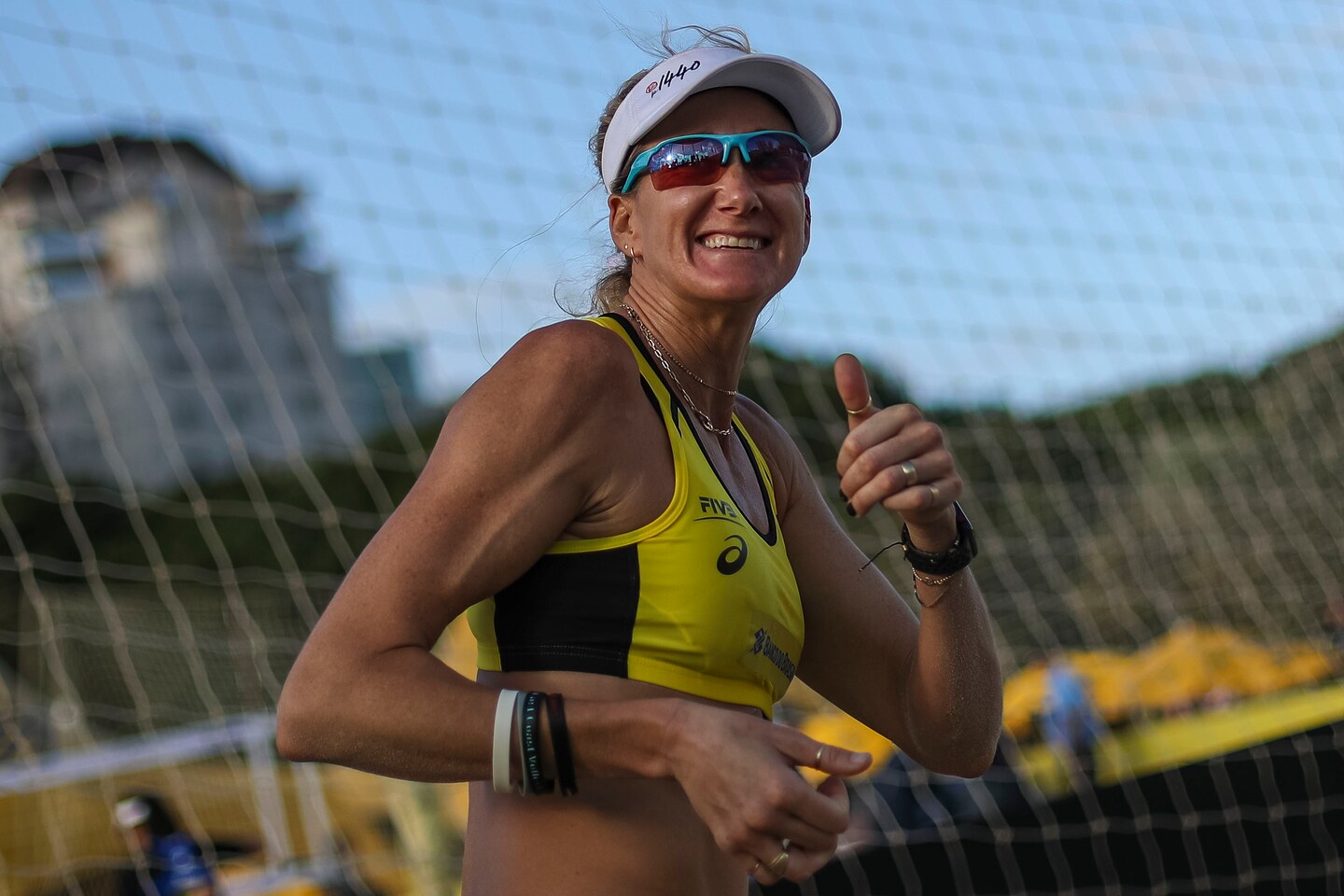Olympian Kerri Walsh Jennings forgot what top athletes know: Discipline leads to freedom

Walsh Jennings, the 42-year-old beach volleyball Olympic gold medalist, wrote on her Instagram account that she recently decided to conduct a “little exercise in being brave,” and so she “went shopping without a mask on.” What moved her to this was a quote by Ralph Waldo Emerson about nonconformity that “woke” her: “Your genuine action will explain itself and will explain your other genuine actions. Your conformity explains nothing.” Ever since, amid the public backlash, Walsh Jennings has been trying to explain herself and her actions. “I fully acknowledge that addressing such an emotional, layered, nuanced and polarizing topic on social media was not the smartest thing,” she admitted in a subsequent apology.
In fact, there’s not much nuance or layer here, just polarity. Masks work — for you and for others. But in venturing forth without one, Walsh Jennings styled herself as a rugged American individualist, nothing short of a rebel Minute Man fighting a war of liberation because “our freedoms have slowly been taken from us with our consent.” She pronounced masking an insidious “manipulation” robbing us of our natural rights. “It’s maddening,” she wrote. “It has crushed our society, people’s livelihoods, our children’s spirits, & the fabric of our world.”
Actually, what’s crushing the fabric of our world — not to mention the English language — are hyper-libertarians who hijack the meanings of great American authors to justify lone wolfism and imperil their neighbors at the grocery store without obtaining anyone’s consent at all. Just to prove a defiant point they will go to the Sturgis Motorcycle Rally maskless and stick the rest of us with a public health bill and fly the flag while doing it. Just be glad they didn’t live in London during the Blitz. Better for the Luftwaffe to land on the streets of London than to pull a blackout curtain. How brave. How free. How nuanced.
Walsh Jennings mixes up personal liberty with anarchy, the refusal to recognize any governance or covenant with other citizens. That’s not freeing, it’s disordering. At risk of getting too “layered and nuanced,” it’s worth exploring the Emerson essay she pulled the quote from, “Self-Reliance.” It’s a magnificent work, but it’s not about independence the way she construes it. It’s about listening to the divine inner voice to produce works of originality and live a life of sensitive intelligence. Emerson was speaking to a highly suffocated Victorian Boston in which every good family had the same sideboard of Madeira and Hepplewhite chairs and intellectuals were struggling to break free of European imitation. Emerson never meant to reject a duty to others. “Society is a joint stock company,” he wrote elsewhere.
And he wrote this beautiful line: “The moment we meet with anybody, each becomes a fraction.”
If sports teaches one worthy value above all others it’s that there is no such thing as full self-reliance; any kind of success is to some extent dependent on blending with others. The late, great Dean Smith once told a selfish player to stand on the court by himself. “Okay, play,” he said. When the kid asked who was going to inbound him the ball, Smith said, “Well, now you know it takes at least two of you.” It’s no accident that pro athletes are making their teams models of mutual cooperation in the pandemic, that only one NFL player tested positive for the virus out of 2,641 results.
Here’s another thing that sports at its best imparts: Any kind of real bravery is grounded in skill, not rushing around with aggressive, stupid energy. The ultimate antidote to risk is expertise. The greatest athletes, in the most testing sports, are supreme switch-flippers who follow highly practiced schematics and control their intensity. They can sprint like hell with a leveling force or stick a contorted landing — and then walk away composedly without injury or injuring. Peyton and Eli Manning’s father, Archie, taught them that the best way to avoid getting hurt was “to know where you’re going with the ball.” Richard Petty once said that his father gave him this fundamental piece of advice about driving: “Win the race as slow as you can.” What scared Petty wasn’t acceleration or a banked curve. It was “amateurs.”
All of which is to say what Smith once said to his players at North Carolina: “The really free person in society is the one who is disciplined.” What he meant was, true freedom results from doing the work to give yourself choices. “The person who is more disciplined is the person who creates options for himself,” he said. He gave an example: Two players liked to indulge themselves off the court. Both were told to make it in the NBA, they needed to lose 20 pounds. One player lost 25. The other kept eating and doing what he wanted, didn’t bother to lose the weight. He was out of the league.
“So which of them was more free?” Smith asked.






